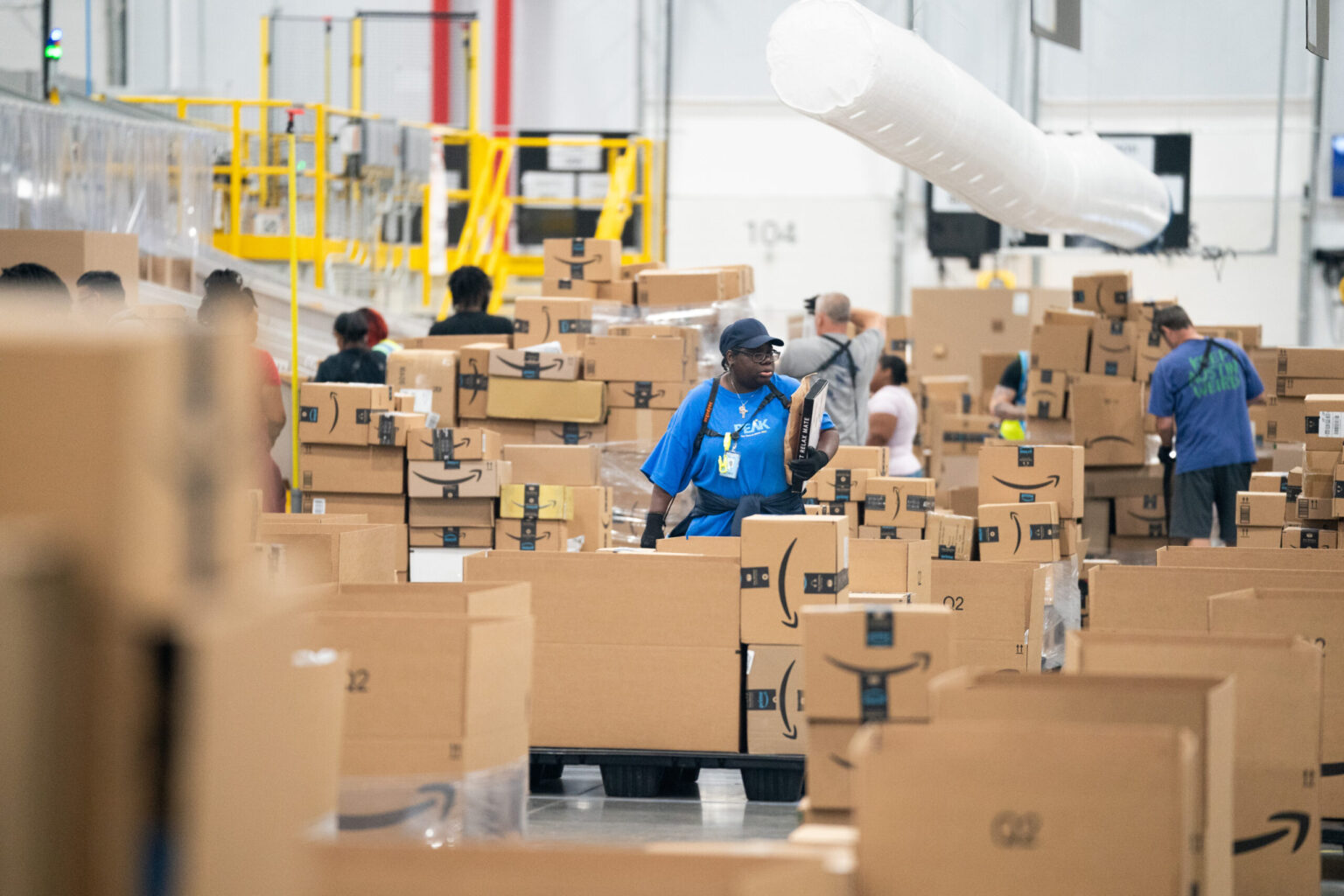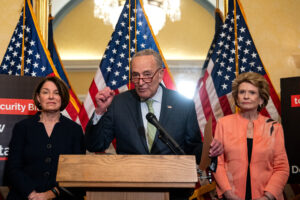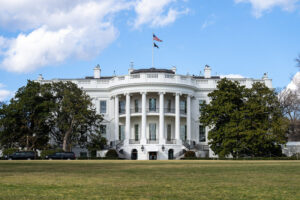12:39
News Story
Amazon singled out by backers of federal warehouse worker safety bill
WASHINGTON — Two Democratic U.S. senators announced Thursday they plan to introduce a piece of legislation that would require large companies to disclose quota practices to workers and prevent those quotas from interfering with a worker’s health.
“The Warehouse Worker Protection Act would put an end to the most dangerous quotas that plague warehouses,” Democratic Sen. Ed Markey of Massachusetts, a sponsor of the bill, said.
There is no published bill text yet.
Markey said the bill would require companies to notify workers of the quotas they need to meet and ban quotas that rely on 24/7 surveillance or are likely to lead to violations of health and safety laws. He added that companies that don’t comply would be investigated by the Department of Labor and could face fines and penalties.
Injuries at Amazon
Markey was joined outside the U.S. Capitol by workers who shared their stories of being injured on the job at Amazon warehouses, along with Democratic Minnesota Sen. Tina Smith and Sean O’Brien, the president of the International Brotherhood of Teamsters.
Smith said that big companies like Amazon care about “efficiency and cost savings and maximizing their profits.”
“They’re experiencing record profits at the same time that the people whose labor they are earning profits on the backs (of), are experiencing completely unacceptable levels of injuries,” she said.
The speakers singled out Amazon for quota practices that endanger workers, though Markey said the Seattle-based e-retail giant is not the only company that engages in a quota system that harms workers.
“Amazon may be at the front of the pack with an injury rate double the national average, but the rest of the big warehousing companies are close behind,” he said.
Some of Amazon’s quota practices include constant monitoring to measure how many items a worker scans, with automatic flags for workers below a certain percentile, and monitoring how long employees take on bathroom breaks and other “time off task,” according to a Thursday report by the National Employment Law Project.
The Amazon warehouse injury rate is “twice that of the private-sector average for all industries and tens of thousands of warehouse workers each year experience serious injuries requiring medical treatment,” according to the report.
O’Brien said that Amazon’s business model “pushes workers to the brink and creates a culture of fear.”
“Warehouses can be very dangerous places to work if safety isn’t made a priority,” he said.
Wendy Taylor, an Amazon worker in Missouri who is organizing for a union, was injured at work in March.
“I was injured at work because of Amazon’s inhumane work rates, because of the exhausting pace in the physical work me and my coworkers do,” she said.
Taylor said she fell and hurt her knee, but when she went to the company medical center, she said “they (refused) to let me see a doctor when I asked, sending me back to work.”
She eventually went to her own doctor, who diagnosed her with a torn meniscus in her knee.
“This experience (shows) how hard it is to get timely, adequate medical treatment from a company that breaks down my body and speeds up my aging for shareholder profits,” she said.
Spokespeople for Amazon did not immediately return a message seeking comment Thursday.
Brian Wild, a spokesperson for the National Association of Wholesaler-Distributors, said in a statement that the industry group does not support the bill, arguing that it could lead to delays and price hikes.
“The bill includes provisions that inappropriately tip the scales to union bosses at the expense of employees and employers by inviting labor organizations to participate in investigations, essentially granting union leaders access to potentially coerce or harass worksites under the guise of ‘worker safety,’” Wild said.
Seeking bipartisan support
Markey said there is bipartisan support in the Senate for the bill, as well as the House.
“We just want to build this out,” Markey said. “It should not be a Democrat or Republican thing, it’s a worker safety bill.”
A warehouse protection law went into effect in Minnesota last year, but advocates have raised concerns that Amazon is not complying with the law.
Several other states, including California, New York, Oregon and Washington, have passed legislation similar to what Markey and Smith are proposing.
Our stories may be republished online or in print under Creative Commons license CC BY-NC-ND 4.0. We ask that you edit only for style or to shorten, provide proper attribution and link to our website. AP and Getty images may not be republished. Please see our republishing guidelines for use of any other photos and graphics.




